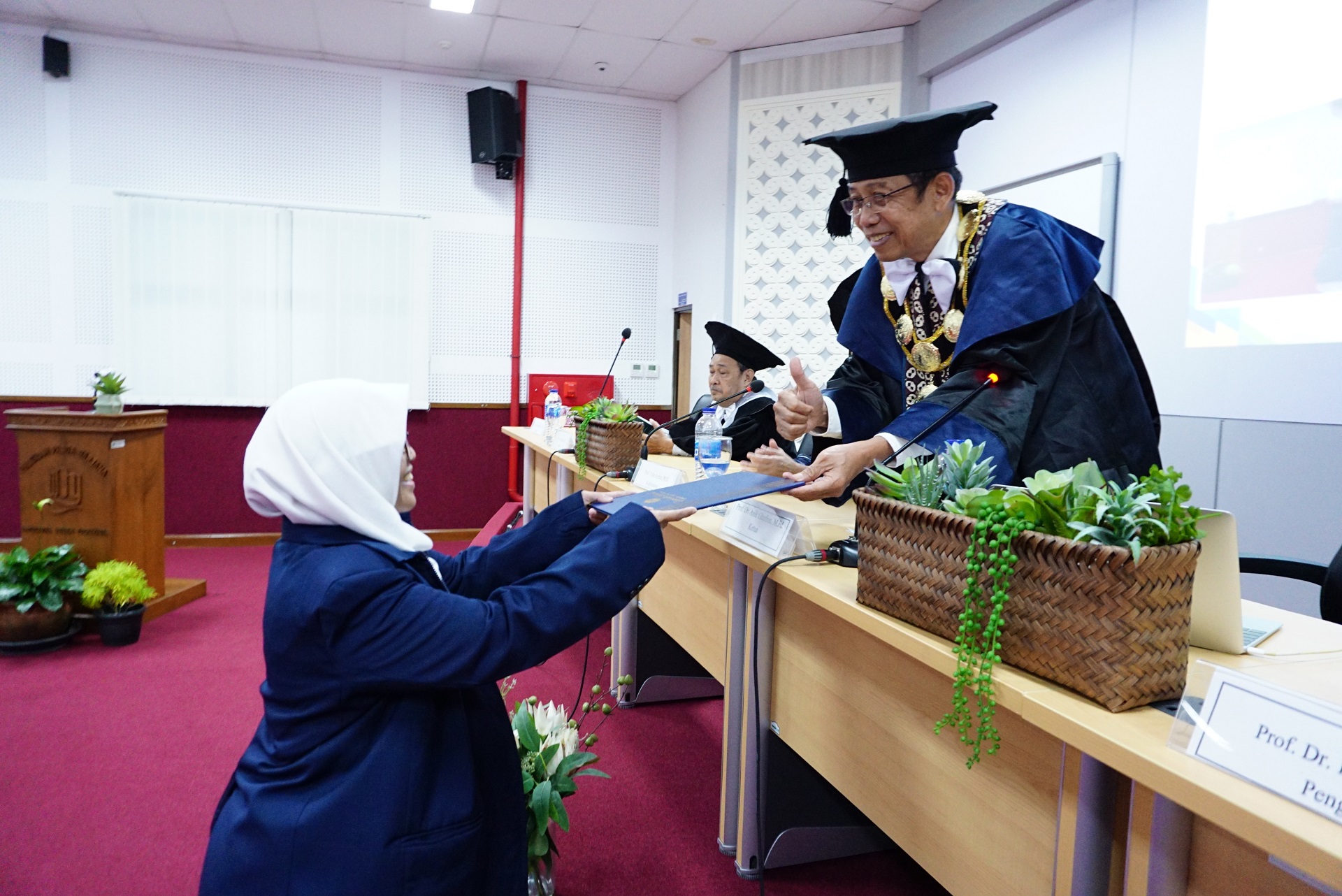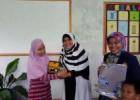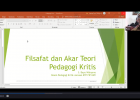You are here
Developing the Niteni, Niroake, Nambahi (Tri-N) Learning Model to Foster Early Childhood Character
Primary tabs

08/02/2023 - Early Childhood Education (PAUD) is an educational effort aimed at children from birth to six years old, focusing on stimulating key developmental domains: religious and moral values, cognitive, language, motor, socio-emotional, and artistic aspects. Strengthening character education from an early age is essential, as children are in a crucial stage of emotional, social, and spiritual development. This aligns with the Character Education Strengthening Programme (PPK) outlined in Presidential Regulation No. 78 of 2017. Character education at this stage helps children learn to manage their emotions and interact effectively with others. Character itself is closely tied to behaviour, attitudes, and personal qualities that distinguish one individual from another, explained Nur Hayati, M.Pd., a doctoral student in Educational Sciences, during her open dissertation defence held in person at the UNY Graduate School.
One of the educational concepts introduced by Ki Hajar Dewantara is Niteni, Niroake, Nambahi (Tri-N), which encourages children to observe learning material, imitate what the teacher demonstrates, and then extend the activity through their own exploration. The Tri-N learning model for character development in early childhood is grounded in Bandura’s social cognitive theory and constructivist learning theory. This research applies the Borg and Gall R&D model, which consists of ten systematic development steps.
In front of the promoters, co-promoters, and examiners, Nur Hayati presented her findings, showing that the Tri-N learning model can effectively foster key character values such as honesty, compassion, loyalty, trust, respect, and responsibility. The model consists of five key components: syntax, social system, reaction principles, support systems, and learning impacts.
Empirical testing demonstrated that the Tri-N learning model meets the criteria of validity, effectiveness, and practicality. Moreover, it proved to encourage children to remind one another of good behaviours they had not previously practiced. “The Tri-N learning product also includes a unique storybook in A3 size (big book) with a spiral binding, making it easier for teachers to read and share stories in the classroom,” Nur Hayati concluded.
KONTAK KAMI
GRADUATE SCHOOL UNIVERSITAS NEGERI YOGYAKARTA
Kampus Karangmalang, Yogyakarta 55281
Telp. +62274-550836 (front office)
Fax. +62274-520326
Email: pps@uny.ac.id, humas_pps@uny.ac.id
Website : http://sps.uny.ac.id
FB: pascasarjana UNY
IG: spsuny_official, s3ip_uny
Twitter: OfficialUNY
Copyright © 2026,









